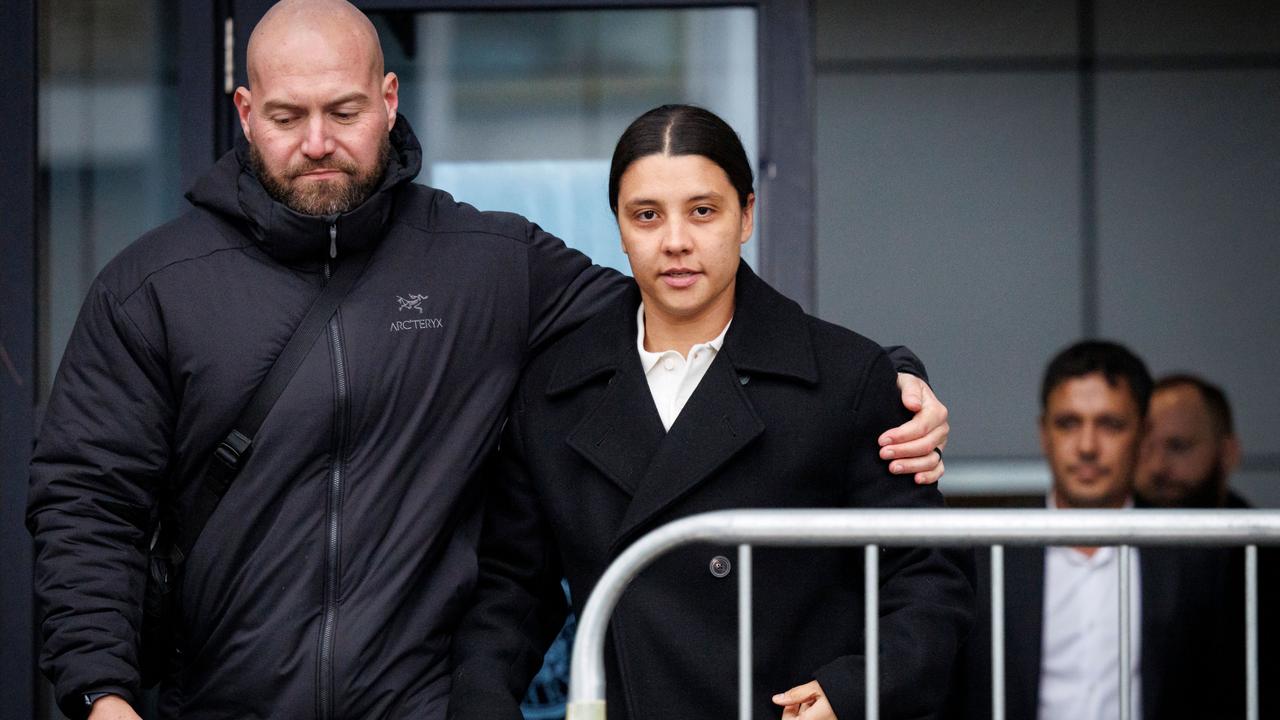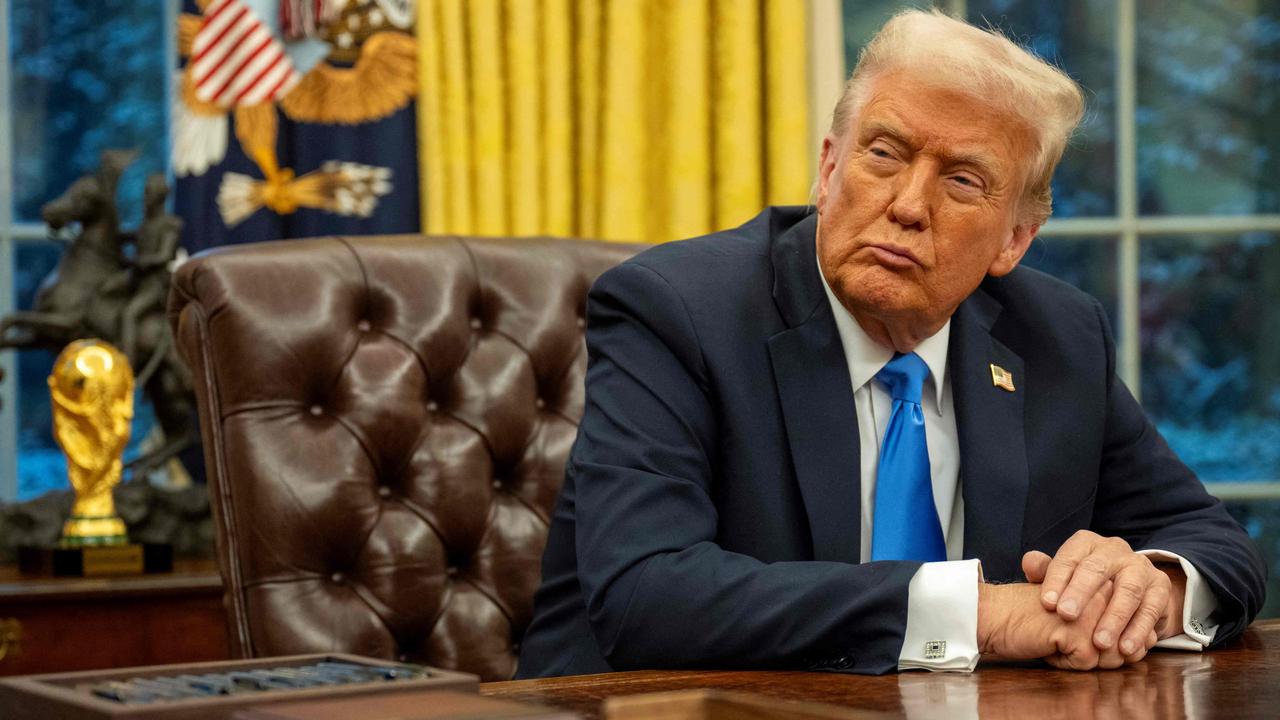Keelty's support vanishes
AFP chief Mick Keelty has refused to countenance resigning despite new pressure over his call for a media blackout during terror cases.
AUSTRALIAN Federal Police Commissioner Mick Keelty yesterday refused to countenance resigning despite new pressure from Kevin Rudd and the legal fraternity over the handling of the Mohamed Haneef case and his call for the media to be muzzled during terror trials.
The Prime Minister yesterday rejected Mr Keelty's call in Sydney on Tuesday for a media blackout during terror cases.
Hours later, Mr Keelty suffered another legal blow in the Haneef case when the Legal Services Commission of Queensland decided to dismiss his complaint against the Muslim doctor's barrister, Stephen Keim, who had provided The Australian with the police record of interview showing Dr Haneef was being unjustly treated by police and prosecutors.
"I think the media's role in the Haneef case was in the national interest," Mr Rudd said. "We're not going to be in the business of imposing some sort of media blackout on the reporting of terrorism cases."
Mr Rudd expressed full confidence in Mr Keelty, adding: "The Government has its own view and the Government's view is that the media should abide by the laws of the land and I err ... on the side of the media giving full and frank coverage".
Australian Council for Civil Liberties president Terry O'Gorman said last night Mr Keelty was unfit to remain as commissioner and should quit.
"He should find another job. If he doesn't, the Government should find another job for him," Mr O'Gorman said. "His speech shows he just doesn't get it -- the man isn't in the real world because he's lost any sense of balance."
Asked last night if he would consider resigning, Mr Keelty said through a spokesman he would not dignify such a question with a response.
Mr Keelty's controversial media blackout proposal, made in a speech to the Sydney Institute on Tuesday, has been widely criticised by the federal Opposition, media and civil liberties groups.
Mr Keelty said he believed media coverage of terrorism cases was inaccurate, ill-informed and a potential threat to the justice process.
However, Mr Keelty made no reference to leaks that came from official sources and benefited the AFP or the Government's position.
In his speech, Mr Keelty took a thinly veiled swipe at Mr Keim, saying that the leaking of information was a threat to justice. "When a record of interview is given to the media with accompanying commentary, we run the risk of jeopardising the accused's ability to receive a fair trial when the matter reaches court," Mr Keelty said.
He called for a complete ban on media coverage of all terror-related cases until they had passed through the court system.
Mr Keelty's spokesman yesterday said the Commissioner did not want to make any further public comment in the wake of his speech.
The Legal Services Commission, which ruled yesterday on Mr Keelty's complaint against Mr Keim, sided with a new investigative report describing the Crown's handling of the bogus terrorism case against Dr Haneef as "shambolic".
The Indian-trained doctor was arrested on the Gold Coast in July after one of his cousins was involved in the failed terror attacks in London and Glasgow. He was charged, and his visa was cancelled by the federal Government, but the case against him collapsed after the media exposed mistakes by the AFP and the office of the commonwealth Director of Public Prosecutions.
Mr Keim, who provided Dr Haneef's AFP record of interview to The Australian in July to counter false police leaks against his client, said he was relieved at the decision. He called on Mr Keelty to admit his mistakes and apologise to Dr Haneef.
Mr Keim said he had been made accountable for his conduct in releasing the record of interview, which showed the police case as threadbare and highlighted parts of the evidence as false.
But Mr Keim said that neither the AFP nor Mr Keelty had explained or apologised for their conduct, prejudicial leaks, and hostile actions against Dr Haneef.
Mr Keim, The Australian's 2007 Australian of the Year, said yesterday, said: "I really wish the AFP would say: 'We have completed our investigation into Dr Haneef and he is free to come back to Australia without fear'."
He described the AFP as "intimidatory" for continuing to state investigations were "ongoing", adding Dr Haneef wanted to move on from his ordeal.
The Legal Services Commission, which had the power to initiate action that could have led to Mr Keim being struck off as a lawyer, found he "clearly breached" one of the Barristers' Rules relating to the release of evidence without consent, but there were exceptional circumstances and the breach was at the "minor end". The commission found "there is no reasonable likelihood of a finding by a disciplinary body of unsatisfactory professional conduct or professional misconduct".
Complaints manager Robert Brittan found Mr Keim had an "exemplary professional record with no previous adverse findings", and not every breach would lead to disciplinary action.
Commissioner John Briton excluded himself from the decision because of his prior contact with Mr Keim.
The commission's decision and reasons were in line with findings by the Bar Association of Queensland. The bar's 21-page report states Mr Keim's conduct had "no potential to interfere in the due administration of justice", and occurred in extraordinary circumstances after then immigration minister Kevin Andrews cancelled Dr Haneef's visa.
The bar's report states that the conduct of the Crown case was revealed to have been "seriously flawed".
"Responsibility for that, as between the DPP and the AFP, is controversial but, on any view, the prosecution was shambolic."
In evidence to the bar association, Mr Keim said Dr Haneef "was in an extremely vulnerable position where his rights and interests, including his reputation, his freedom and his right to a fair trial were under assault from misleading leaking of material by law enforcement officers".
"Release of the document radically changed the situation of disadvantage in which Dr Haneef was placed," Mr Keim said. "The record of interview allowed the public to perceive the baseless nature of many of the leaks which had occurred and the weakness of the evidence on which action had been taken against Dr Haneef."


